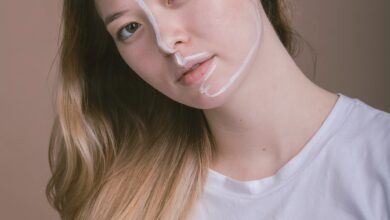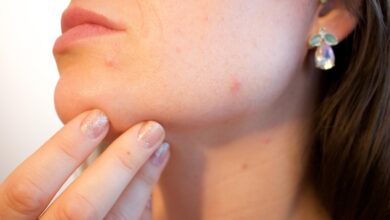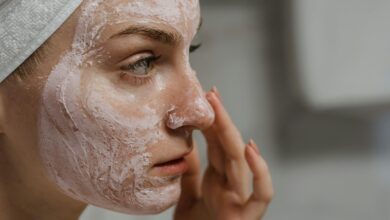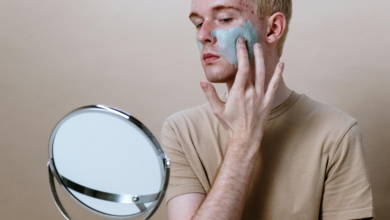Best Body Cream for Aging Skin: Expert-Recommended Solutions

As we age, our skin undergoes a series of changes that lead to dryness, thinning, loss of elasticity, and the appearance of fine lines and wrinkles. While facial skincare often takes center stage, the skin on the body deserves just as much attention, especially for individuals over the age of 30. Investing in the best body cream for aging skin can help restore moisture, enhance firmness, and improve the overall texture of your skin.
In this article, we will explore the essential features of anti-aging body creams, key ingredients to look for, how to choose the right product for your skin type, and the top-rated body creams that are praised for their effectiveness. This comprehensive guide is designed to help you make an informed decision for youthful, radiant skin from head to toe.
Understanding the Skin Aging Process
Skin aging is a natural phenomenon influenced by both intrinsic factors (genetics and time) and extrinsic factors (sun exposure, pollution, smoking, poor nutrition, and lack of hydration). As collagen and elastin production decline, the skin loses its ability to bounce back, resulting in sagging and a rough texture. The body’s ability to retain moisture also diminishes, causing dryness and dullness.
While these changes are inevitable, the use of targeted skincare products, specifically formulated body creams, can slow down the aging process and visibly improve skin condition over time.
Click here to know detail about Best Facial Cleanser for Aging Skin
Why Use a Body Cream Specifically for Aging Skin?
Body creams designed for aging skin go beyond basic moisturization. They are often enriched with potent anti-aging ingredients that target key concerns like:
- Loss of firmness
- Dryness and dehydration
- Wrinkles and fine lines
- Uneven skin tone and texture
- Loss of elasticity
Such creams are thicker, richer, and more nutrient-dense than regular body lotions. They penetrate deeper to repair the skin barrier, stimulate collagen production, and boost hydration levels, making them an essential part of any mature skincare regimen.
Key Ingredients to Look for in the Best Body Creams for Aging Skin
Not all creams are created equal. Here are the most effective and research-backed ingredients to look for when selecting an anti-aging body cream:
1. Retinol (Vitamin A)
Retinol stimulates collagen production, enhances cell turnover, and reduces the appearance of wrinkles and pigmentation. It is one of the most powerful ingredients in anti-aging skincare.
2. Hyaluronic Acid
This molecule can hold up to 1,000 times its weight in water, making it a superior hydrator. It plumps the skin and reduces the appearance of fine lines.
3. Peptides
Peptides are short chains of amino acids that signal the skin to produce more collagen. They help firm and smooth the skin over time.
4. Niacinamide (Vitamin B3)
Niacinamide helps improve elasticity, even out skin tone, strengthen the skin barrier, and reduce inflammation.
5. Antioxidants (Vitamin C, E, Green Tea, CoQ10)
Antioxidants combat free radical damage caused by UV rays and pollution. They protect the skin from premature aging and improve radiance.
6. Ceramides
These are lipids that help restore the skin barrier and retain moisture. Aging skin benefits greatly from ceramide-infused products.
7. Alpha Hydroxy Acids (AHAs)
AHAs like glycolic and lactic acid exfoliate dead skin cells and promote smoother, brighter skin.
8. Shea Butter and Natural Oils
These provide deep nourishment and moisture to dry, aging skin, improving suppleness and texture.
Top Recommended Body Creams for Aging Skin
Here are some of the best body creams on the market, highly recommended by dermatologists and skincare experts:
1. CeraVe SA Lotion for Rough & Bumpy Skin
- Contains salicylic acid and ceramides
- Exfoliates and restores the skin barrier
- Fragrance-free and suitable for sensitive skin
2. Gold Bond Age Renew Crepe Corrector
- Targets crepey skin and improves elasticity
- Features a nourishing blend of seven moisturizers
- Noticeable results within weeks of use
3. Neutrogena Hydro Boost Body Gel Cream
- Formulated with hyaluronic acid
- Lightweight, non-greasy, and fast-absorbing
- Ideal for daily hydration
4. Alpha Skin Care Renewal Body Lotion
- Contains 12% glycolic acid (AHA)
- Smooths rough texture and encourages cell turnover
- Best for mature, dry, or sun-damaged skin
5. Paula’s Choice Retinol Skin-Smoothing Body Treatment
- Combines retinol with antioxidants and emollients
- Firms skin and diminishes signs of aging
- Dermatologist-developed and cruelty-free
6. Eucerin Advanced Repair Cream
- Includes ceramides, urea, and natural moisturizing factors
- Provides long-lasting hydration and repair
- Excellent for very dry or sensitive skin
7. AmLactin Daily Moisturizing Body Lotion
- Contains 12% lactic acid to exfoliate and smooth
- Improves rough, dry skin texture
- Budget-friendly and dermatologist-recommended
How to Choose the Right Body Cream for Your Skin Type
When choosing the best body cream for aging skin, consider the following:
For Dry Skin:
Look for deeply hydrating ingredients such as shea butter, hyaluronic acid, and ceramides.
For Crepey Skin:
Use creams that contain peptides, retinol, or alpha hydroxy acids to firm and smooth the skin.
For Sensitive Skin:
Opt for fragrance-free, hypoallergenic formulas with calming ingredients like niacinamide and colloidal oatmeal.
For Uneven Tone or Hyperpigmentation:
Choose products with vitamin C, niacinamide, or licorice root extract for brightening effects.
For Mature Skin Prone to Flaking:
Lactic or glycolic acid-based lotions exfoliate and promote cellular renewal for softer skin.
Tips for Maximizing Results from Your Body Cream
To get the most out of your anti-aging body cream, follow these practical tips:
- Apply Immediately After Showering: When skin is damp, it better absorbs moisture.
- Use Daily: Consistency is key to seeing long-term improvements.
- Exfoliate Weekly: This removes dead skin cells and allows active ingredients to penetrate more effectively.
- Protect with Sunscreen: UV exposure is the leading cause of premature aging. Use SPF on exposed areas.
- Massage During Application: Increases circulation and enhances product absorption.
Common Myths About Anti-Aging Body Creams
Myth 1: Only the face needs anti-aging care.
Reality: The neck, chest, arms, and legs also show signs of aging and require targeted care.
Myth 2: Expensive creams are always better.
Reality: Effectiveness depends on ingredients, not price. Many drugstore brands offer excellent formulations.
Myth 3: Body creams can erase all wrinkles.
Reality: While they can significantly improve skin texture and appearance, they do not eliminate deep wrinkles.
Conclusion
Choosing the best body cream for aging skin is a proactive step toward maintaining a youthful, radiant appearance throughout your body. By understanding your skin’s needs and selecting products with proven ingredients—like retinol, peptides, and hyaluronic acid—you can effectively combat dryness, loss of elasticity, and other signs of aging.
Incorporate the cream into a daily skincare routine, apply it consistently, and combine it with healthy lifestyle habits such as a balanced diet, adequate hydration, regular exercise, and sun protection. Aging is inevitable, but how you care for your skin can make all the difference in how it looks and feels.
Frequently Asked Questions (FAQs)
Q1: How often should I apply anti-aging body cream?
Answer: For best results, apply the cream twice daily—once in the morning and again at night—especially after bathing when the skin is most receptive to moisture.
Q2: Can I use facial anti-aging products on my body?
Answer: While not harmful, facial products are often more expensive and formulated for thinner facial skin. Body creams are better suited for larger areas and deeper hydration.
Q3: At what age should I start using anti-aging body creams?
Answer: It’s never too early to start preventive care. Most people begin to benefit from anti-aging products in their late 20s to early 30s, but mature skin benefits at any age.
Q4: Are natural or organic body creams better?
Answer: Natural ingredients like shea butter, jojoba oil, and aloe vera can be beneficial. However, the effectiveness depends on the formulation, not just the source of ingredients.
Q5: Can men use anti-aging body creams too?
Answer: Absolutely. Aging affects all skin types and genders. Men can use the same products, depending on their individual skin needs.



